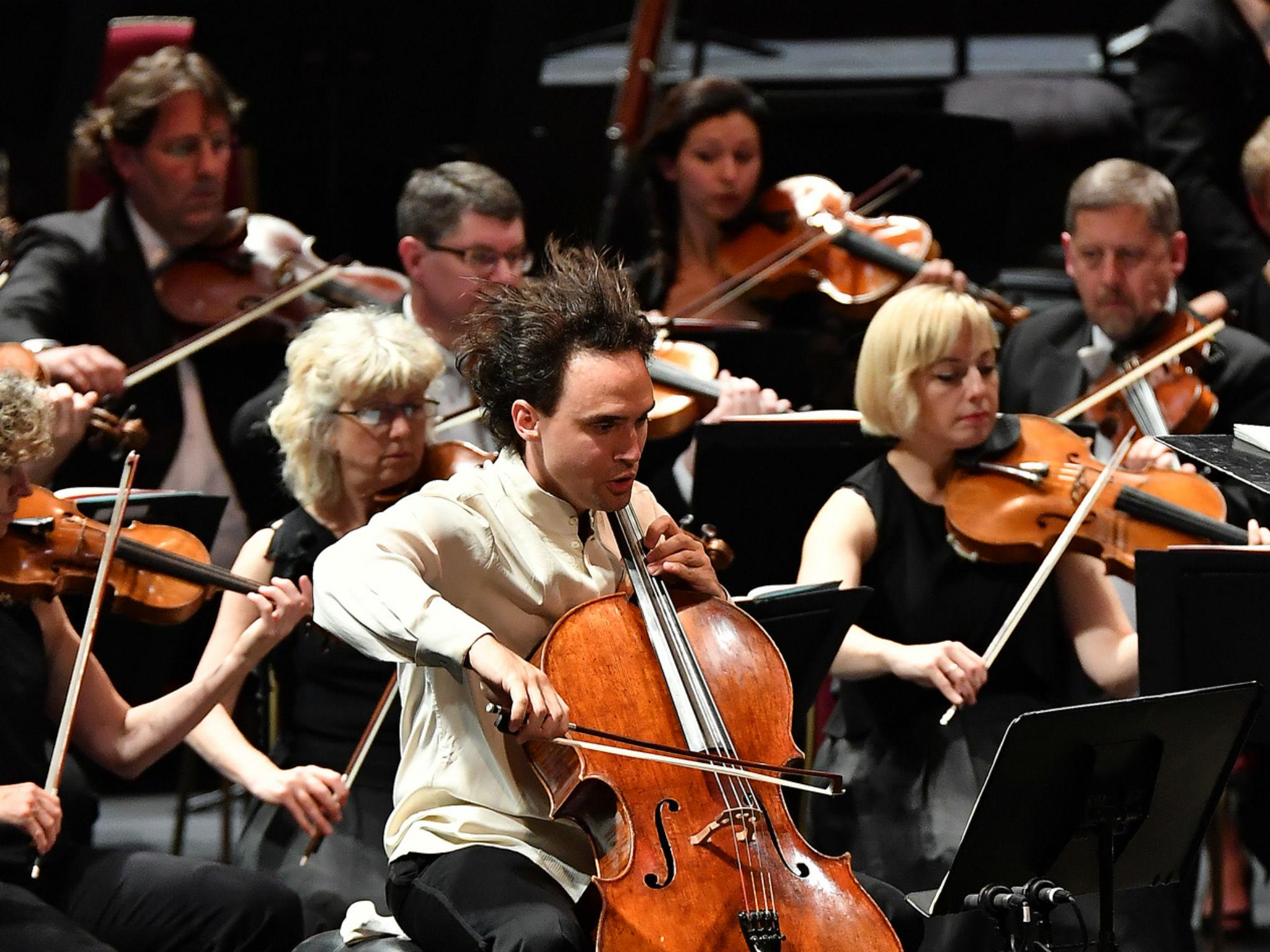Prom 32, Britten, Brian Elias, Purcell, Elgar, Royal Albert Hall, London, review: 'A meditation on nationhood in crisis'
Leonard Elschenbroich, Toby Spence, BBC National Chorus of Wales, BBC National Orchestra of Wales, Ryan Wigglesworth

If a musical celebration of Englishness sounds like a flag-waving, Brexity sort of occasion, then think again. This concert by rising young conductor Ryan Wigglesworth and the BBC National Chorus and Orchestra of Wales was something both far more thoughtful and more complicated – a meditation on nationhood in crisis.
Britten’s little-performed Ballad of Heroes set the tone for the evening. Churning uneasily between moods, caught between action and horrified contemplation, this Spanish Civil War-inspired work is tricky to pull off, and Wigglesworth and his forces didn’t entirely succeed. The all-important texts were swallowed by chorus, and while the orchestral shading was precise, the back-of-the-beat singing never quite captured the music’s intrinsic sense of urgency.
Better was Purcell’s choral anthem Jehova, quam multi sunt hostes mei, where national anxieties were painted with striking directness. Elgar’s spacious arrangement amplified this miniature to Royal Albert Hall proportions, and together with the Britten it offered a timely comment on military conflict and a people under threat.
But at the heart of the programme were the two contemporary works: Elgar’s Enigma Variations and the world premiere of Brian Elias’s new Cello Concerto. Sensitively, if sometimes a little obtrusively, shaped, the Elgar, with its mercurial moods and sudden shifts offered a fascinating foil to the Elias, whose four movements have the sense of a single musical gesture, followed doggedly to its point of resolution.
A late replacement for the work’s dedicatee Natalie Clein, Leonard Elschenbroich brought a single-minded intensity to the knotty solo part, but the relationship between his insistent questioning and the intricate orchestral textures behind him remained tantalisingly unclear. This a work that, like the Elgar, is unwilling to give up all its secrets.
Subscribe to Independent Premium to bookmark this article
Want to bookmark your favourite articles and stories to read or reference later? Start your Independent Premium subscription today.

Join our commenting forum
Join thought-provoking conversations, follow other Independent readers and see their replies